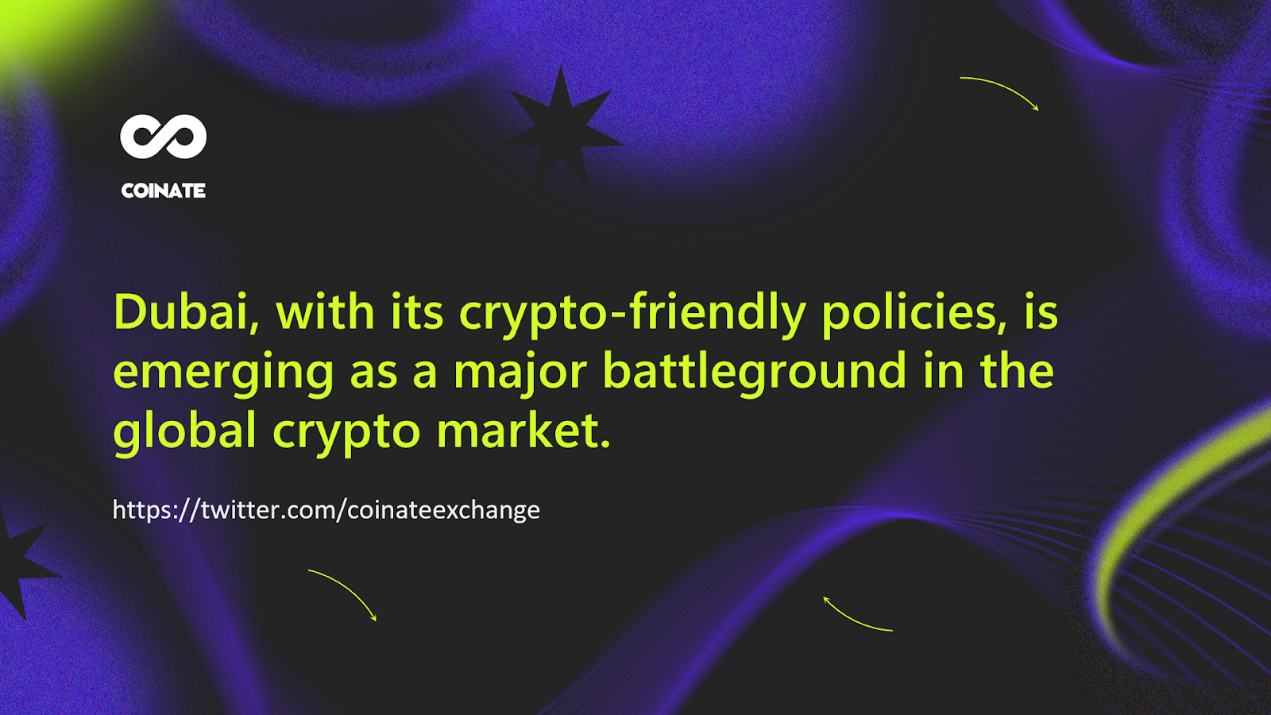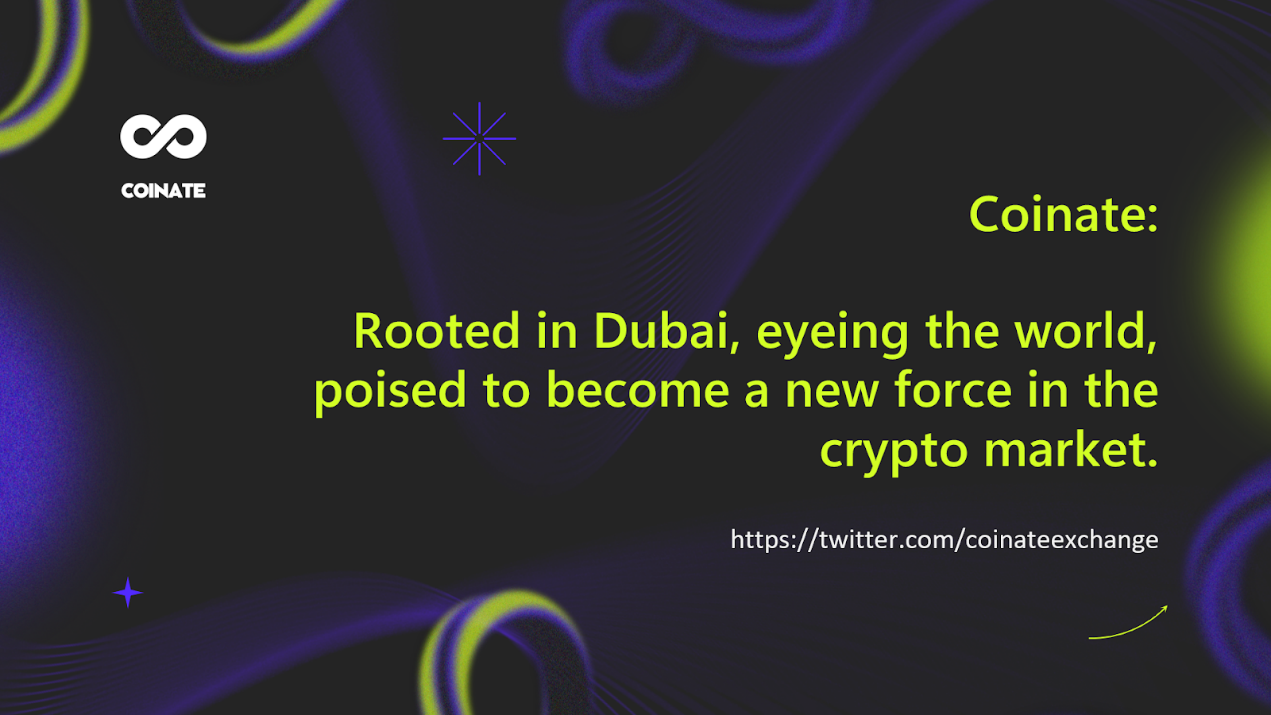Envo MegaMeeting: A Technical Look at the Future of
In a world where remote work, global teams, and decentralized communities are now the norm, video conferencing tools have become crit
As the cryptocurrency market continues to heat up, global exchanges are engaged in fierce competition at an unprecedented pace. Dubai, as a financial and technological hub in the Middle East, has become a prime destination for crypto exchanges due to its forward-thinking regulatory policies and embrace of blockchain technology.
Amid this backdrop, Coinate has emerged as the second-largest cryptocurrency exchange in Dubai, backed by strong support from the Dubai Sovereign Wealth Fund. This article explores the Middle Eastern crypto market, listing the top 10 global cryptocurrency exchanges and analyzing Coinate’s unique position and growth potential in Dubai and beyond.
Top 10 Global Cryptocurrency Exchanges in the Middle East
1. Binance
Binance is the world's largest cryptocurrency exchange, with its headquarters now in Dubai. It boasts over 180 million registered users and an average daily spot trading volume of $12 billion. The platform offers various services, including spot trading, derivatives, and leveraged tokens. In 2023, Binance partnered with local financial institutions in the UAE to support AED trading, significantly strengthening its competitiveness in the Middle East and cementing its position as the region’s leading platform.
2. Coinate

Coinate, headquartered in Dubai, is the second-largest cryptocurrency exchange in the region. The platform’s biggest advantage lies in its investment from the Dubai Sovereign Wealth Fund, which not only provides substantial financial support but also underscores Dubai’s ambition to establish itself as the Middle East’s crypto hub.
Focusing on security and innovation, Coinate offers a wide range of trading pairs and an intuitive user interface, attracting high-net-worth investors and active traders in the Middle East. Although its global influence is not yet on par with Binance, Coinate’s localized strategy has secured it a key position in the regional market.
3. Bybit
Bybit has also set up its headquarters in Dubai, serving over 30 million users worldwide with an average daily trading volume of $7 billion. Known for derivatives trading, it offers up to 100x leverage and supports AED deposits. Bybit has applied for a license from the Dubai Virtual Asset Regulatory Authority (VARA), demonstrating its commitment to compliance in the Middle Eastern market.
4. Coinbase
Coinbase is a top-tier U.S.-based cryptocurrency exchange with an average daily trading volume of $4.5 billion. It is well-known for its user-friendly interface and strict regulatory compliance. While its direct presence in the Middle East is limited, its global brand influence still attracts some users from the region.
5. Kraken
Founded in 2011 and headquartered in the U.S., Kraken is recognized for its high-security standards and support for multiple fiat currencies, including USD and EUR. The platform provides 24/7 customer support in the Middle East and attracts regional users with low trading fees.
6. OKX
OKX is a global exchange offering over 300 cryptocurrencies for trading. It stands out for its 1:1 asset reserve transparency. OKX supports AED deposits and has established an office in Dubai, actively expanding in the Middle Eastern market.
7. Huobi (HTX)
Founded in 2013, Huobi supports 600+ cryptocurrencies and provides spot and futures trading. Its high-performance matching engine makes it popular among institutional investors. Huobi is currently expanding its presence in the UAE to strengthen its position in the region.
8. Bitget
Bitget specializes in derivatives trading, offering up to 125x leverage and serving over 8 million users worldwide. The platform features a copy trading function that is beginner-friendly. It supports AED transactions and is actively growing in Dubai.
9. MEXC
MEXC provides over 2,000 cryptocurrencies and 2,500 trading pairs, with a key highlight being its zero-fee spot trading. While it does not support fiat currency transactions, its user base in Dubai is steadily expanding.
10. Gemini
Gemini, a U.S.-based exchange, prioritizes security and regulatory compliance. Its simple interface makes it ideal for beginners. Despite its lower trading volume, Gemini still holds some influence in the Middle East.
Coinate: A Rising Star in the Middle Eastern Crypto Market
Among the top 10 global exchanges, Coinate stands out in the Middle East due to its local advantages and strong government backing. As the second-largest crypto exchange in Dubai, Coinate leverages UAE’s zero-tax policy (no capital gains tax or personal income tax) and VARA’s regulatory framework to ensure secure and compliant transactions.

With investment from Dubai’s Sovereign Wealth Fund, Coinate not only enjoys strong financial support but also integrates seamlessly into the region’s financial ecosystem.
Coinate’s slogan, “Where possibilities are infinite ∞,” reflects its vision for innovation. The platform offers a diverse range of crypto trading pairs and plans to introduce more Middle East-focused products and services. With multi-language support and 24/7 customer service, Coinate has quickly gained popularity among regional users.
Although Binance currently leads the global market, Coinate’s deep-rooted presence in the Middle East gives it a unique advantage. Analysts predict that as Dubai accelerates its transition into a global crypto hub, Coinate is poised to expand its global influence and solidify its position as a top-tier exchange.
Conclusion
The global crypto exchange race has now extended into the Middle East, with Dubai at its center due to its strategic location and favorable regulations. While Binance dominates the global market, Coinate’s rapid rise showcases the growing significance of localized crypto exchanges in Dubai.
For investors, choosing the right exchange is crucial, and Coinate is undoubtedly a rising star worth watching. With continued investment and innovative offerings, Coinate is set to play a more significant role in both the Middle Eastern and global crypto landscape.
In a world where remote work, global teams, and decentralized communities are now the norm, video conferencing tools have become crit
In a world where remote work, global teams, and decentralized communities are now the norm, video conferencing tools have become crit
In a world where remote work, global teams, and decentralized communities are now the norm, video conferencing tools have become crit


